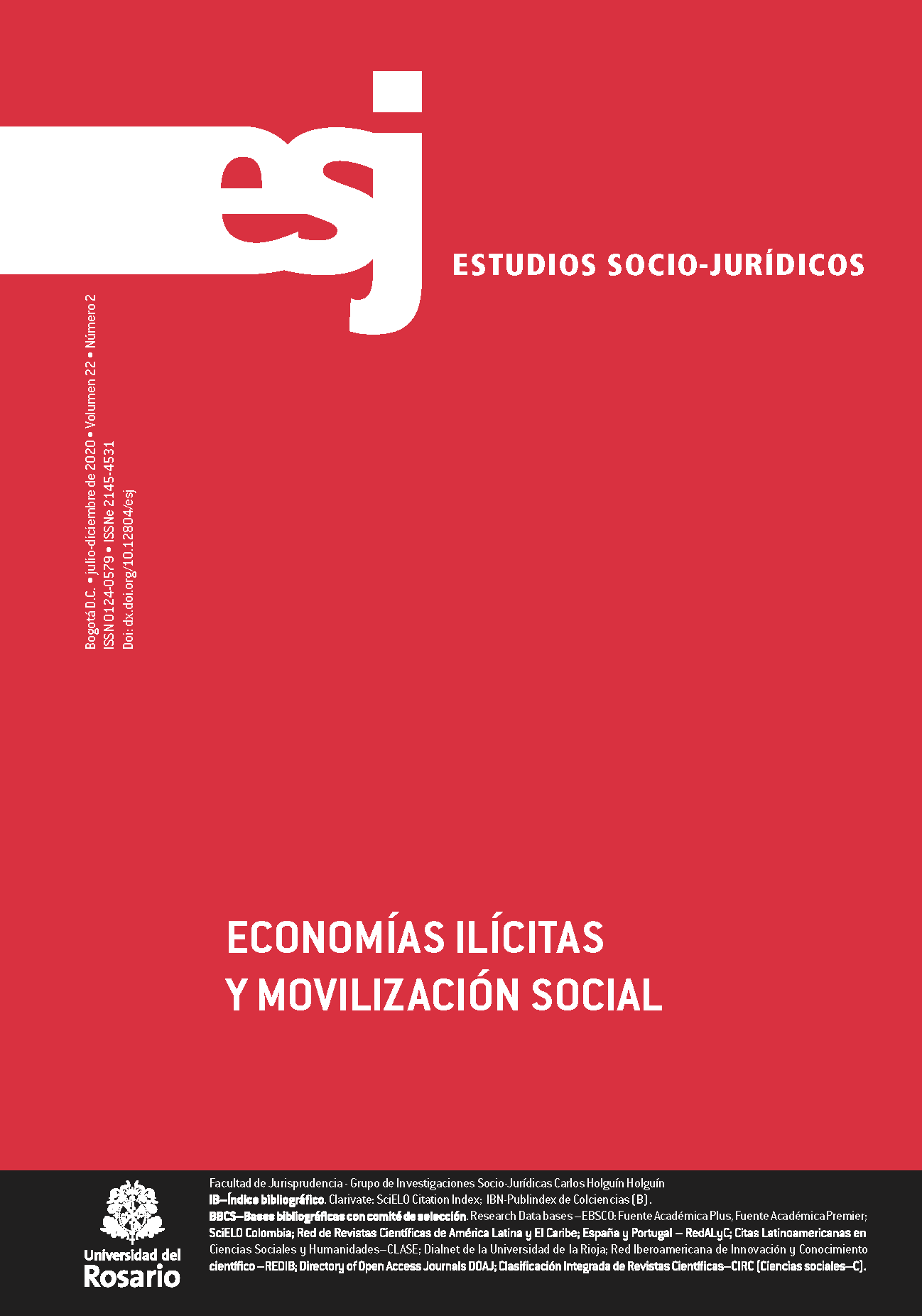Narcotráfico, pandilleros y capital cultural positivo en Nicaragua
Barra lateral del artículo
Contenido principal del artículo
Descargas
Dennis Rodgers, Graduate Institute of International and Development Studies/Institut de hautes études internationales et du développement
Research Professor,
Department of Anthropology and Sociology,
Graduate Institute of International and Development Studies/Institut de hautes études internationales et du développement,
Acemoglu, D., Johnson, S., & Robinson, J. A. (2001). The colonial origins of comparative development: an empirical investigation. American Economic Review, 91(5), 1369-1401.
Angeles, L. (2011). Institutions, property rights, and economic development in historical perspective. Kyklos, 64(2), 157-177.
Baird, A. (2015). Duros and gangland girlfriends: male identity, gang socialisation and rape in Medellín. En J. Auyero, P. Bourgois & N. Scheper-Hughes (Eds.), Violence at the urban margins (pp. 112-132). Oxford: Oxford University Press.
Bourgois, P. (1995). In search of respect: selling crack in El Barrio. Cambridge: Cambridge University Press.
Contreras, R. (2013). The stickup kids: race, drugs, violence, and the American dream. Berkeley: University of California Press.
Friedman, S., Savage, M., Hanquinet, L., & Miles, A. (2015). Cultural sociology and new forms of distinction. Poetics, 53, 1-8.
Glenny, M. (2009). McMafia: seriously organised crime. London: Vintage Books.
Karandinos, G., Hart, L. K., Castrillo, F. M., & Bourgois, P. (2014). The moral economy of violence in the US inner city. Current Anthropology, 55(1), 1-22.
Kessler, G. (2004). Sociología del delito amateur. Buenos Aires: Editorial Paidós.
Levitt, S., & Dubner, S. (2005). Freakonomics: a rogue economist explores the hidden side of everything. London: Penguin.
North, D. C., & Weingast, B. R. (1989). Constitutions and commitment: the evolution of institutions governing public choice in seventeenth-century England. Journal of Economic History, 49(4), 803-832.
Piketty, T. (2014). Capital in the twenty-first century. Cambridge: Harvard University Press-Belnapp.
Pettifor, A., & Tily, G. (2014). Piketty’s determinism? Real-World Economics Review, 69, 44-50.
Rodgers, D. (2006). Living in the shadow of death: gangs, violence, and social order in urban Nicaragua, 1996-2002. Journal of Latin American Studies, 38(2), 267-292.
Rodgers, D. (2007a). Managua. In K. Koonings & D. Kruijt (Eds.), Fractured cities: social exclusion, urban violence and contested spaces in Latin America (pp. 71-85). London: Zed.
Rodgers, D. (2007b). When vigilantes turn bad: gangs, violence, and social change in urban Nicaragua. In D. Pratten & A. Sen (Eds.), Global vigilantes (pp. 349-370). London: Hurst.
Rodgers, D. (2015). The moral economy of murder: violence, death, and social order in gangland Nicaragua. In J. Auyero, P. Bourgois & N. Scheper-Hughes (Eds.), Violence at the urban margins (pp. 21-40). Oxford: Oxford University Press.
Rodgers, D. (2016). Critique of urban violence: Bismarckian transformations in contemporary Nicaragua. Theory, Culture, and Society, 33(7-8), 85-109.
Rodgers, D. (2017a). Why do drug dealers live with their moms? Contrasting views from Chicago and Managua. Focaal - Journal of Global and Historical Anthropology, 78, 102-114.
Rodgers, D. (2017b). Micro-volumetric urbanism: the socio-symbolic political economy of multi-storied construction in poor urban neighbourhoods in Managua, Nicaragua. Presentación realizada durante el taller internacional sobre “Volumetric Urbanism: Charting New Urban Divisions”, University of Sheffield, UK, 24-26 de mayo.
Rodgers, D. (2018). Drug booms and busts: poverty and prosperity in a Nicaraguan narcobarrio. Third World Quarterly, 39(2), 261-276.
Rodgers, D., & Rocha, J.-L. (in progress). The myth of Nicaraguan exceptionalism: gangs, crime, and the political economy of violence. Mimeo.
Savage, M. (2014). Piketty’s challenge for sociology. British Journal of Sociology, 65(4), 591-606.
Varese, F. (2001). The Russian mafia: private protection in a new market economy. Oxford: Oxford University Press.
Volkov, V. (2002). Violent entrepreneurs: the use of force in the making of Russian capitalism. Ithaca: Cornell University Press.
Detalles del artículo

Esta obra está bajo una licencia internacional Creative Commons Atribución-NoComercial-SinDerivadas 4.0.
Los autores conservan los derechos de autor y garantizan a la revista el derecho de ser la primera publicación del trabajo al igual que licenciado bajo una Creative Commons Attribution License que permite a otros compartir el trabajo con un reconocimiento de la autoría del trabajo y la publicación inicial en esta revista.
Bajo la licencia Atribución No Comercial (CC BY-NC-ND 4.0) Se puede compartir, copiar, distribuir, ejecutar y comunicar públicamente la obra y hacer obras derivadas, siempre y cuando se reconozcan los créditos del autor.
Artículos más leídos del mismo autor/a
- Dennis Rodgers, Adam Baird, Entender a las pandillas de América Latina: una revisión de la literatura , Estudios Socio-Jurídicos: Vol. 18 Núm. 01 (2016)
- Dennis Rodgers, Nuevas perspectivas sobre la seguridad ciudadana en Latinoamérica , Estudios Socio-Jurídicos: Vol. 15 Núm. 1 (2013)
- Francisco Gutiérrez-Sanín, Dennis Rodgers, Introducción Economías ilícitas, movilización social y ambigüedades , Estudios Socio-Jurídicos: Vol. 22 Núm. 2 (2020)



